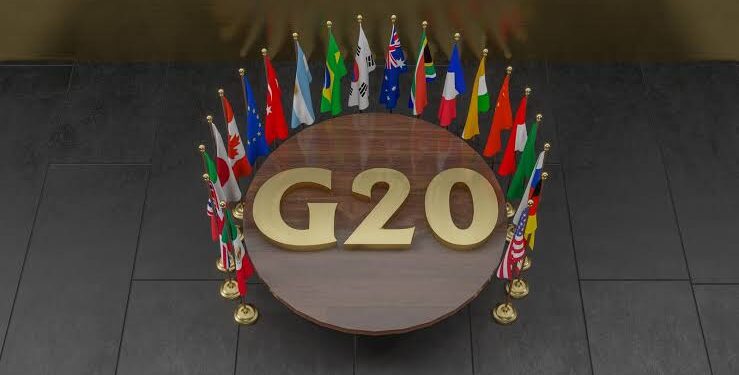Saudi Arabia’s market performance has held up well thanks to the country’s highest growth rate among the G20 nations, ongoing attempts to diversify the economy, and a healthy influx of foreign direct investment.
“Tadawul is by far the largest stock exchange in the Middle East, and it is seeking to become a regional centre with cross-listings of companies from other countries in the Gulf,” said Waleed Rasromani, corporate mergers and acquisitions partner of Dubai and Riyadh at Linklaters, a multinational law firm with offices in the UK.
The Kingdom’s market has evolved as a result of intense merger and acquisition activity and strong growth in initial public offerings, and this trend is predicted to continue beyond 2023.
prepared for market expansion:
A solid basis for the Kingdom’s exceptional market performance was built by its oil-led growth, non-oil diversification policy, and governmental structures.
Strong liquidity, local investors’ interest in Saudi stocks, and the pursuit of the objectives described in Vision 2030 have all aided the market’s rise.

The expansion of the oil industry, according to a World Bank report published in November, is allegedly propelling the economy of the Kingdom. So, in 2022, it is anticipated that the economy will rise by 8.3 percent.
Saudi Arabia would continue to have the fastest-growing economy among the G20 nations, according to the International Monetary Fund, despite adverse economic conditions.
The Capital Market Authority is pursuing legislative initiatives to increase investor knowledge and make the financial market more alluring and transparent.
By the fiscal year 2023, CMA wants institutional investor turnover to account for 41% of all market turnover.
Another element that promotes and supports the development of the Saudi market is the Kingdom’s Financial Sector Development Programme.
It planned to raise the stock market’s value as a proportion of GDP from 66.5 percent in 2019 to 88 percent by 2030, excluding the Saudi Arabian Oil Co. IPO. On December 29, Saudi Aramco’s closing share price was SR32.10.
Through initial public offerings (IPOs) on the Saudi stock exchange, Saudi government officials are also encouraging the planned privatisation of state-owned institutions.
Additionally, Saudi companies favour domestic IPO listings over those on more established stock exchanges, perhaps due to disclosure and corporate governance.
The Kingdom is monetizing its investments as a result of the Saudi government’s push for privatisation,” said Ibrahim Soumrany, a partner at US-based international law firm White & Case in Dubai. “The Saudi government’s push for privatisation has prompted more IPOs.”
Soumrany further stated that more overseas businesses are considering going public in the Kingdom. As more businesses seek to list in both their domestic markets and Saudi Arabia, there is consequently growing support to allow dual listings in the upcoming years.
strong performance
With Tadawul’s market capitalization increasing by 24 percent annually to $3.19 trillion in the first quarter of 2022, the Kingdom had the highest performance of all the emerging markets since COVID-19.

The earnings of Saudi enterprises with public listings increased by 22% annually as of December. Additionally, their revenues grew by 19 percent annually, demonstrating that these businesses are making more sales and earning higher profits.
The owner of the Kingdom’s stock exchange, however, recently reported a 23 percent decline in profit to SR367 million ($98 million) in the first nine months of 2022.
Along with this fall, revenue fell by 7% to SR849 million, primarily as a result of a decline in trading and post-trade services.
Between January and September, higher wages and employee perks further reduced profit, causing operational expenses to rise by 14.7% year over year to SR465 million.
The Kingdom suffers when the US Federal Reserve attempts quantitative tightening to control inflation because the Saudi Riyal is tied to the US Dollar and the Saudi Central Bank follows OMO policies.
However, strong regional fundamentals could offer some support to the market, according to Daniel Takieddine, CEO of BDSwiss, a financial company established in the Seychelles that serves the Middle East and North Africa.
On December 29, the share prices of Riyadh Bank and Al-Rajhi Bank closed at SR31.80 and SR75.20, respectively.
With Saudi Arabia in the vanguard, the Gulf markets have enjoyed a boom year for initial public offerings (IPOs), thanks to an increase in oil prices brought on by the conflict.
Despite the decline in initial public offerings (IPOs) in developed markets caused by global unpredictability and stock market volatility, the Kingdom is also setting the pace for regional listing activities.
“We foresee more IPO traction, and the Kingdom’s IPO market is predicted to stay robust. The Middle East practise leader at Alvarez & Marsal Global Transaction Advisory Group in Dubai, Ali Anwar, remarked that it doesn’t appear like there would be a slowdown there.
During the third quarter of this year, Saudi Arabia had two IPOs on Tadawul and three on its parallel market Nomu, generating $490 million in total proceeds, according to renowned professional services company Ernst & Young.
Future prospects
Anwar responded to Arab News’ question about the prospects for 2023 by saying, “The Kingdom of Saudi Arabia is brimming with confidence.” Rasromani of Linklaters, on the other hand, stated, “I am optimistic for the coming year.”
The 2023 forecast report from the Riyadh-based firm Al Rajhi Capital makes this sentiment clear.
Despite the economic unpredictability and recessionary fears, a study from the report revealed that almost 60% of participants expect the markets to be in the positive zone, with 23% of them anticipating gains that exceed 5%.
The report highlighted the banking industry as the most favoured sector, as participants believe that growth in corporate loans and net interest margin expansion will fuel banks’ profitability in the fourth quarter of 2022.


